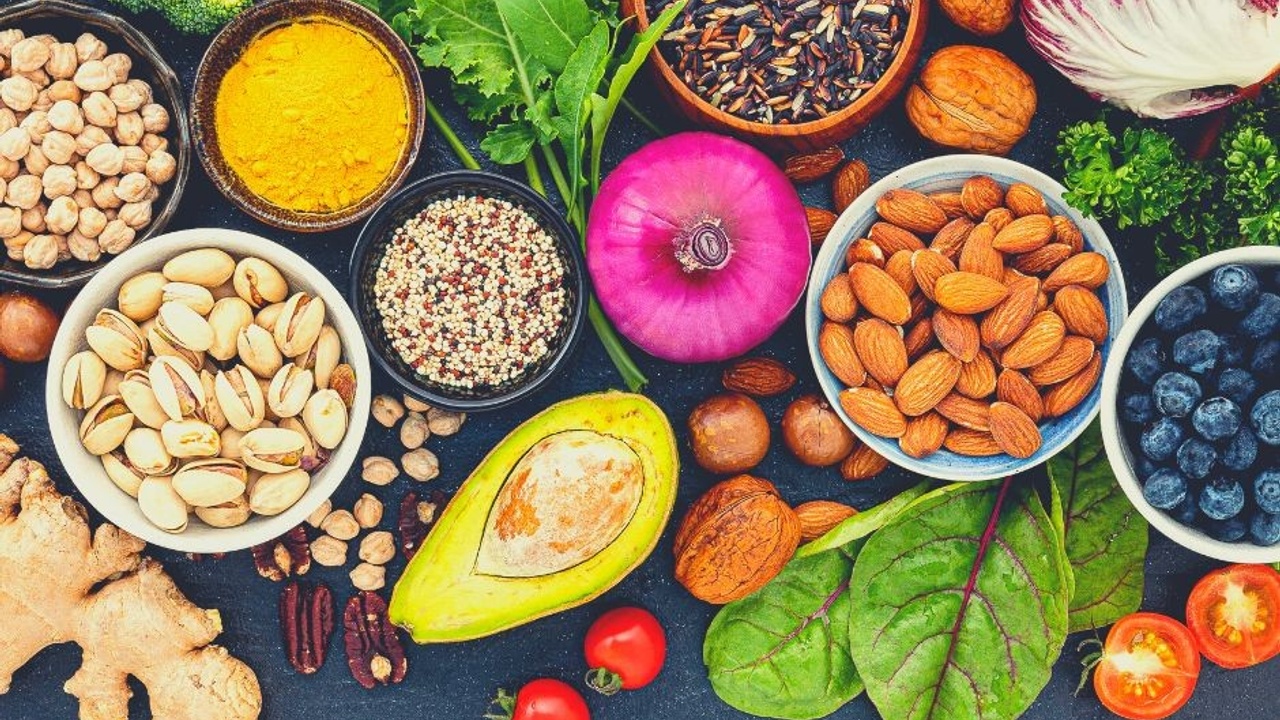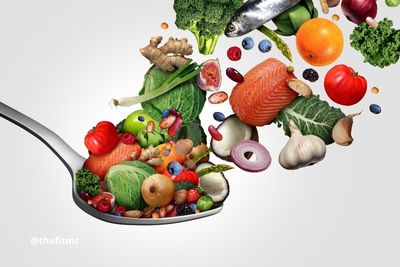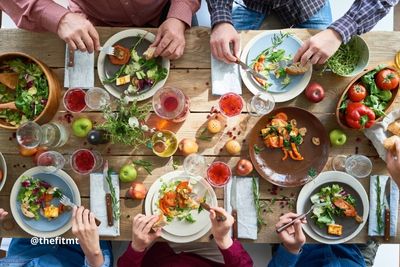How Eating a Balanced Diet Helps Massage Therapists Energy and Nutrition

Every massage therapist knows just how important it is to maintain a healthy diet to improve overall health. But there's more to starting a healthy diet than simply eating foods we call "healthy."
When you’re making changes to your diet, it helps to understand why your body needs specific nutrients throughout the course of the day.
A balanced diet is vital in improving health and leaves you feeling full longer. Eating less frequently works for massage therapists' busy days.
Massage therapists may be busy, but we can't sacrifice energy levels, so eating balanced and getting the right vitamins and minerals is in our best interest.
Let’s Eat Smarter.
When most people think about diets, they heavily emphasize the number of calories they're consuming for the day.
However, the nutrients you're consuming are much more important than the calorie count.
That's because your body needs both macronutrients and micronutrients to function correctly. These nutrients include:
- Carbohydrates
- Proteins
- Fats
- Vitamins
- Minerals
Think about it this way. If you're eating the standard 2,000 calories per day but you're eating a diet loaded with fats and sugars, you'll be much more likely to increase your risk of developing health conditions and gaining weight than if the diet were more balanced.
Your overall goal in consuming a more balanced diet should be to get the nutrients your body requires without overdoing it.
Getting too much or too little of specific nutrients can cause adverse health consequences that can effectively set your new diet back even further. Plus, you lose energy without a balanced diet, and people tend to fall back on crutches like caffeine and sugar when their energy levels wane.
Macronutrients

Your body needs three macronutrients, carbohydrates, protein, and fat.
Carbohydrates
Carbohydrates are not all created equally.
There are simple carbs and complex carbs. Stay away from the simple carbs and eat the complex carbs for more energy and nutrients.
Simple carbohydrates are made up of processed and refined sugars. Examples are box cereals, cookies, soda, and anything made with white flour and sugar.
Complex carbohydrates take the body longer to metabolize and therefore create longer-lasting energy. Some complex carbs are whole grains, beans, oatmeal, quinoa, barley, and potatoes.
To read a related article about tracking macros click here.
Protein
Protein makes up the building blocks of our muscular system. You can get protein from meat, eggs, and dairy foods and non-meat proteins like tofu, quinoa, edamame, lentils, and beans.
Fat
Fats, like carbohydrates, fall into a good and bad category. Fats in a healthy diet are found in foods such as avocados, nuts, seeds, fish, and olive oil.
The fats to be eaten sparingly are fatty meats, fried foods, whole-fat dairy products, and food cooked in lard.
Micronutrients

Vitamins and minerals make up the category of micronutrients.
Some critical vitamins needed in a balanced diet are Vitamin A, the B vitamins, and vitamin D, to name a few.
Vitamin A
Vitamin A is found in broccoli and other cruciferous vegetables, carrots, and apricots. Vitamin A is good for vision, growth, cell division, reproduction, and immunity. Vitamin A also has antioxidant properties.
Vitamin B
Vitamin B is found in avocados, leafy greens, eggs, and seafood. The B complex of vitamins directly impacts your energy levels, brain function, and cell metabolism.
Vitamin D
Our bodies need vitamin D to absorb calcium. Its anti-inflammatory and antioxidant properties support immune health, muscle function, and brain cell activity. To add Vitamin D to your diet, you can eat mushrooms, and fatty fish, like tuna or salmon, and it's also found in eggs.
Here is a sample of critical minerals needed in a balanced diet.
Magnesium
Magnesium is found in foods like sunflower seeds, whole grains, legumes, and leafy greens.
Zinc
To get zinc in your diet, eat lima beans, black-eyed peas, mushrooms, bright fruits, and vegetables.
Iron
There are a variety of food sources for iron, including shellfish, molasses, lean meats, dried beans, liver, nuts, seeds, lentils, chickpeas, and apricots.
Why Balanced Meals are So Important
There are quite a few reasons that balanced diets are considered so important.
First, balanced meals contain plenty of nutrients in one meal and allow you to spread your nutrient consumption throughout the day. Rather than getting all of your vitamin D in the morning, for example, you can get it in smaller portions throughout the day.
This can help you to maintain consistent levels of the required nutrients at all times rather than having them spike with specific meals.
Balanced meals are also much more interesting to consume. With a truly balanced meal, your meal will be stocked full of different tastes, textures, colors, and nutrients. That means you have many more options for different types of meals you can make.
When each meal is balanced with the right food types, you are more likely to get the nutrients you need, and you will eat less. Eating a balanced meal, including carbohydrates, protein, and fat, leaves you feeling full longer, which makes you eat less over the course of a day.
Add Variety

In order to stick to any diet, particularly a more balanced diet, you need to add a lot of variety. There are a few reasons for that.
If you get bored eating the same meals, day in and day out, you'll most likely revert to your previously unhealthy diet. When you lose interest in eating because the food doesn't appeal to you or becomes too repetitive, you'll lose focus and get off track.
It also helps to keep your diet much more fun. When you're constantly cooking new meals, trying out fresh ingredients, and pairing new foods, you'll be much more interested in eating, even if it is considered a "healthy" balanced diet.
Variety also allows you to select the nutrients you're getting with each meal strategically. By choosing specific foods or ingredients, you can better target the nutrients you're lacking and cut out some of the nutrients that you're getting in abundance.
Hopefully, there are some new ideas you picked up from reading this. Although massage therapists may be aware of the importance of eating a balanced diet, a reminder is sometimes just the thing to reset the commitment to putting the right foods in our bodies.
Be fit and eat some colorful foods with micronutrients today,

Want to know the latest happenings around The Fit Massage Therapist?
Come hang with us, where we are happy and massaging pain-free.
Don't worry, your information will not be shared.




